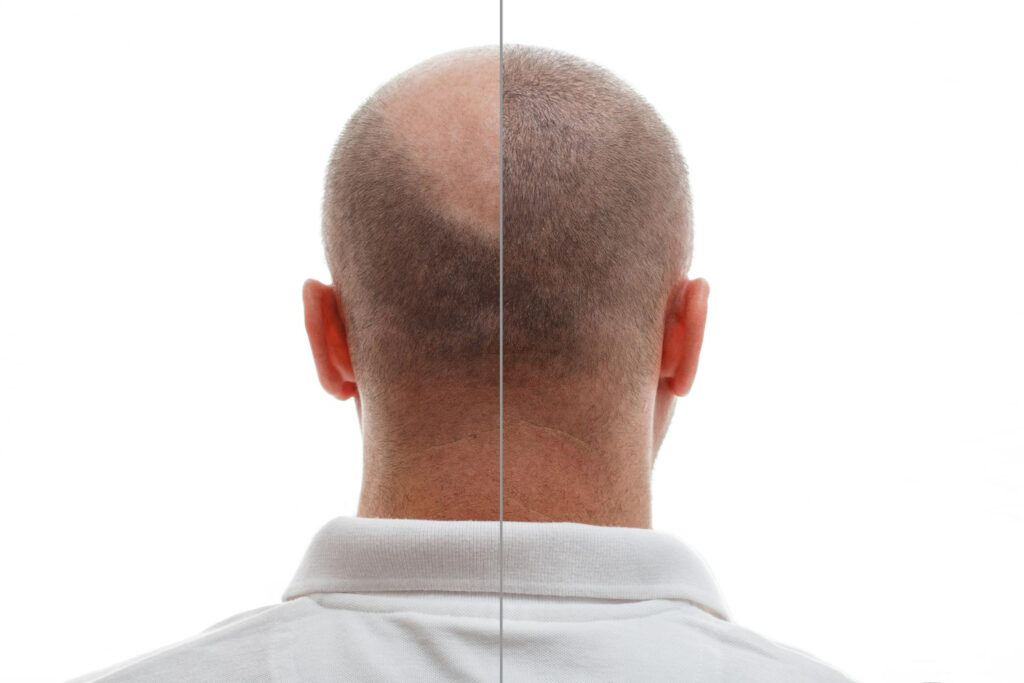hair transplants are a popular and effective solution for hair loss. But many people wonder – how long do hair transplants last? This blog post will delve into the expected longevity of hair transplants and offer valuable tips for maintaining healthy transplanted hair and overall scalp health, ensuring your results continue to shine for years to come.
The Lifespan of Transplanted Hair
The good news is that hair follicles transplanted during a successful procedure are genetically programmed to continue growing hair throughout your life. Unlike the surrounding hair, which may be susceptible to hormonal influences leading to hair loss, the transplanted follicles are resistant to these factors.
However, some thinning of the transplanted hair may occur with age, similar to the natural aging process of your native hair. This is because the scalp’s blood supply and overall health can affect hair growth over time.
Factors Affecting Long-Term Results
Several factors can influence the long-term success of your hair transplant:
- Donor area: The quality and density of hair follicles in the donor area (typically the back of the scalp) significantly impact the longevity and density of transplanted hair.
- Surgical technique: A skilled and experienced surgeon utilizing minimally invasive techniques like FUE (Follicular Unit Extraction) can minimize scarring and optimize graft survival, leading to better long-term results.
- Post-operative care: Following your surgeon’s aftercare instructions meticulously is crucial for proper healing and maximizing graft survival.
- Overall scalp health: Maintaining a healthy scalp with good blood flow promotes optimal hair growth, including transplanted hair.
- Genetics: While transplanted hair is less susceptible to male pattern baldness, individual genetic predispositions can still play a role in overall hair loss.
Maintaining Healthy Transplanted Hair
By following these tips, you can significantly improve the long-term success of your hair transplant:
- Scalp massage: Regularly massaging your scalp can improve blood circulation, promoting healthy hair growth.
- Scalp cleansers: Use a gentle, hair loss shampoo and conditioner to cleanse your scalp without stripping away natural oils.
- Balanced diet: Ensure your diet is rich in essential nutrients like vitamins A, C, D, and E, iron, and protein, all of which contribute to healthy hair growth.
- Manage stress: Chronic stress can negatively impact hair growth. Practice stress-reduction techniques like yoga or meditation.
- Sun protection: Wear a hat or use sunscreen with SPF 30 or higher on your scalp to prevent sun damage, which can affect hair growth.
- Smoking cessation: Smoking restricts blood flow to the scalp, hindering hair growth. Consider quitting smoking for overall health benefits, including improved hair health.
- Medications: Discuss any medications you take with your doctor, as some can contribute to hair loss.
Maintaining Communication with Your Hair Transplant Clinic
Regular consultations with your hair transplant clinic are vital for monitoring your progress and addressing any concerns. They can also offer personalized advice on maintaining scalp health and optimizing the longevity of your hair transplant results.
Conclusion
Hair transplants can be a life-changing solution for hair loss, offering long-lasting results. By understanding the factors influencing transplant longevity and incorporating these maintenance tips into your routine, you can ensure your hair continues to thrive for years to come. Remember, a healthy scalp is the foundation for healthy hair growth, both transplanted and native.






